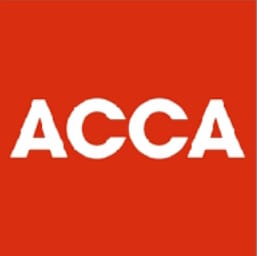When setting up a new business, one of the most important decisions you’ll have to deal with is the structure and legal status your business will have to adopt in moving forward, whether you will trade as a sole trader or incorporate your business as a limited company?
The business structure you choose can have an impact on almost every aspect of your business, including how much your overall tax bill is going to be, what profitability you can make, and what can happen if your company gets into financial difficulty. What might work for one company may not necessarily work for another. So, it is important that you look at the pros and cons of both to enable you in making an informed decision.

Below are the five important questions you need to ask yourself to help you in deciding which business structure to adopt:
1. How profitable my business going to be?
Currently limited companies pays corporation tax at a rate of 19% which is fixed until 2023 and unlike sole traders, limited companies do not have to pay any national insurance contributions on their profits. It is therefore, generally more beneficial for businesses making significant profits to incorporate.
2. Are there any other sources of personal income?
Taxable profits from self-employment are included on an individual’s self-assessment tax return and combined with income from all other sources such as pension and rental income from investment properties. This can make an individua’s income to fall into the higher or additional rate tax band which could be taxed at either 40% or 45%.
3. Will this be a one-man business or will this be run with other business partners?
Unlike limited companies within partnerships profits are distributed between partners at a pre-determined rate as per partnership deed while in a limited company, one can appoint directors or shareholders with different voting rights on company’s strategic decisions and allow more control over what is paid to each shareholder. This enables more flexibility in carrying out personal tax planning.

4. Will my personal assets be protected with limited liability?
One of the major benefit of operating through a limited company is that this option provides limited liability for the shareholders up to their shareholding within the company. What this means is that if the company goes into financial difficulty, there would be a ceiling on your personal liability to company debts and your personal assets will be safe.
5. How easily I will be able to withdraw funds from my business?
Within sole traders and partnerships, business profits are taxable in full, therefore, there are not any restrictions on withdrawing funds from the business for private matters. Limited companies are considered as a separate legal entity in the eyes of law and the profits and any money held within the limited company are considered as the property of the company and not the shareholders. Therefore, there are more restrictions on how much funds can be withdrawn for personal use. This would need to be done through either a salary scheme or via a dividend payment, both of which will then be reflected on shareholder’s personal tax return for relevant tax year.
Summary
When it comes down to choosing sole trader or a limited company, the legal model you want to decide on for your company ultimately depends on what sort of company you want to start.
Small businesses and self-employed traders may prefer the simplicity and control over earnings offered by sole trader route, while those aspiring to start a larger business with lots of workforce might be tempted by the security that an incorporated company offers, especially in terms of reducing personal liability. Ultimately, it all depends on your individual business model and ambitions for the future.
All content provided on this blog is for informational purposes only. The owner of this blog makes no representations as to the accuracy or completeness of any information on this site or found by following any link on this site.


